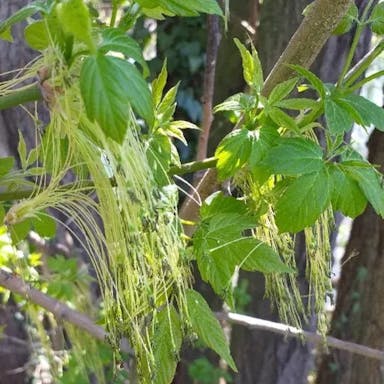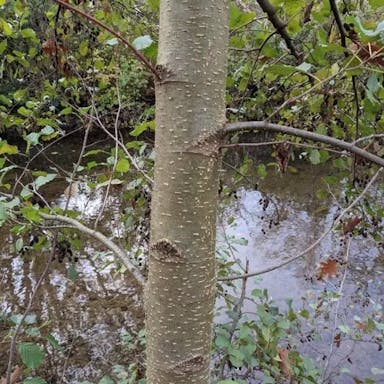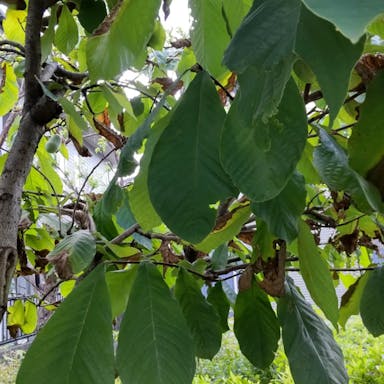Meyer's spruce, scientifically known as Picea meyeri, is a coniferous tree native to China. It has dense branches that hang a bit at the tips. The needles are typically blue-green, short, and sharp, going around the branches in a spiral. This kind produces small, tube-like cones that hang from the branches and become light brown when mature. Meyer's spruce is valued for its decorative beauty in landscaping because of its stylish form and attractive leaves. It grows well in well-drained, sour soils and likes full sunlight to partial shade. Meyer's spruce needs little care once settled, making it a famous choice for gardens and parks. It can become 30-50 feet tall with a spread of 10-20 feet, giving great shade and windbreak abilities.
Meyer's spruce
- Scientific name
- Picea meyeri
Basic Information
- Pinaceae Family Picea Genus Meyer's spruce Species
- Pinaceae > Picea > Picea meyeri
- 83%
- The Completeness of This Encyclopedia
Please help us complete the encyclopedia, Terrarium is a encyclopedia service to be completed with everyone in the world. Currently, this page is 83% complete. For more information on how to contribute, please click here.
- Indeciduous tree
- Tree
- Height
- 1500cm ~ 3000cm
- Flower Color
- Leaf Color
- Anthesis
- Sunlight Exposure
Full Sun Long hours of sunlight from morning to afternoon Partial Shade A location in the shade of a tree or where either the morning or afternoon is shaded Full Shade A place where there is no direct sunlight
- Full Sun
- Hardiness Zones
This is an indicator to know to which zone each plant can winter. Knowing the zone of each plant gives you an idea of the cold temperature resistance when grown in the ground without a roof. 2: -42.7 to -40.0 3: -39.9 to -34.4 4: -34.3 to -28.9 5: -28.8 to -23.3 6: -23.2 to -17.8 7: -17.7 to -12.2 8: -12.1 to -6.7 9: -6.6 to -1.1 10: -1.0 to 4.4 11: 4.5 to 10.0
- 2
- Cold resistance
- Excellent
- Heat resistance
- Fair
- Habitat of origin
- China
- Growth Rate
- Normal
What is Meyer's spruce (Picea meyeri)?
What is Meyer's spruce (Picea meyeri)
Flower meaning
The flower language commonly used in America for Meyer's spruce is: - Everlasting love - Strength and resilience - Perseverance and determination These reflect the long lasting lifespan and hardiness of Meyer's spruce.
Calendar of Meyer's spruce (Picea meyeri)
Calendar
Meyer's spruce typically blooms in the spring season in the United States. The flowers of Meyer's spruce are at their best in May. Blooming usually occurs once a year, lasting for 2 to 3 weeks. To extend the blooming period, ensure the plant receives adequate sunlight, water, and nutrients. Pruning dead branches can also promote more vigorous blooming. The spruce flowers each spring in America. They look best in May. Blooming happens once per year for 2-3 weeks. To make the blooming last longer, ensure the tree gets enough sun, water and food. Cutting off dead branches can also help it bloom more.
How to grow Meyer's spruce (Picea meyeri)
Watering
Each week be watering a tad. If soil is dry, insert pointer under terrain. Moisten but not drenched. During cold, water less. This fir desires somewhat acid, seeping dirt. Vary quantity by plant amount and weather.
Soil and Fertilizer
Meyer's spruce thrives in well-drained, acidic soils with a pH range of 4.5 to 6.0. It is enabled by a instead mixture of soil to support its growth. Fertilization prepare in early spring before new growth begins and again in late spring or early summer. A well-built slow nature solution with an N-P-K ratio of 10-10-10 is suitable for Meyer's spruce. Apply it evenly around the drip line of the tree, avoid contacting the trunk. Water the area after fertilizing. Do not fertilize in late summer or fall to prevent new increase. Monitor the soil quality and adjust accordingly.
Sunlight and Place
Meyer's spruce flourishes with full sun or partial shade, preferring six hours of direct sunlight daily. It displays outstanding cold endurance, enduring harsh winter conditions. The plant has average heat tolerance but may require some shade in extremely hot regions. Meyer's spruce favors cool to average temperatures, ideally 15 to 21 °C. In summer, adequate watering prevents drying, especially in warmer areas. In winter, protect against strong winds and heavy snow. Well-draining soil avoids waterlogging for Meyer's spruce. Consistent moisture and avoiding overwatering are vital for its health.
Advanced Information of Meyer's spruce (Picea meyeri)
Pruning
Meyer's spruce benefits from pruning to maintain its shape, remove dead or damaged branches, and promote healthy growth. Regular monitoring for pests or diseases is recommended to maintain the tree's health. Several steps should be taken when pruning trees. Removing dead or diseased branches improves tree structure. Cutting into old wood may hinder regrowth. Late winter or early spring pruning minimizes stress. Provide adequate water and mulch after pruning. It supports recovery.
Planting and Harvest
Meyer's spruce thrives best when potted rather than in-ground due to its compact size and adaptability to container growth. After planting, water thoroughly and place in a location with bright, indirect light. If the plant shows signs of yellowing needles or stunted growth, consider repotting into fresh soil with improved drainage.
Propagation
Meyer's spruce has the ability of multiplication through seeds, cuttings, and grafting. The seeds require planting in the fall within a drainage-effective medium for natural stratification. A different method includes obtaining semi-hardwood cuttings in late summer to early autumn. Additionally, leaf cuttings can work by taking a fit leaf that has a petiole and positioning it inside a rooting medium. Yet another technique involves division in early spring by partitioning the root ball into parts. To guarantee genetic diversity, utilizing a mixture of these techniques is optimal.
Pests and Diseases
Meyer's spruce is susceptible to various pests and diseases. These pests and diseases can cause defoliation, stunted growth, and ultimately lead to the death of the tree. Several larvae feed on new needles, causing significant damage. Mitesslady drink sap from needles, leading to discoloration and reduced photosynthesis. Needlecastonecast diseases cause premature needle drop. Maintaining tree health by regular watering, fertilization, and pruning can support less stress and create the tree fewer pests and diseases. Good air circulation around the tree can support stop the spread of needlecast diseases. Check the tree for early signs of infestation or disease is important for timely intervention and management.
Habitat of Meyer's spruce (Picea meyeri)
Habitat
Toxicity of Meyer's spruce (Picea meyeri)
Health Benefits
- edible
- Inedible
- Toxic
- No toxicity
NO DATA
Toxic for dogs and cats
NO DATA
Q&A of Meyer's spruce (Picea meyeri)
- choice
Meyer's spruce has several varieties, such 01. 'Hillside', known for its compact size and 02. 'Pendula', which has weeping branches. When select seeds, opt for those from good sources with high rates. For young ones, choose ones with healthy green and roots. Make sure the young are free from and issues. It is good to buy young ones to for easier place in your area. Stay away from young with yellowing or hurt leaves, as they may show underlying problems. Always check the overall of the before buy.






